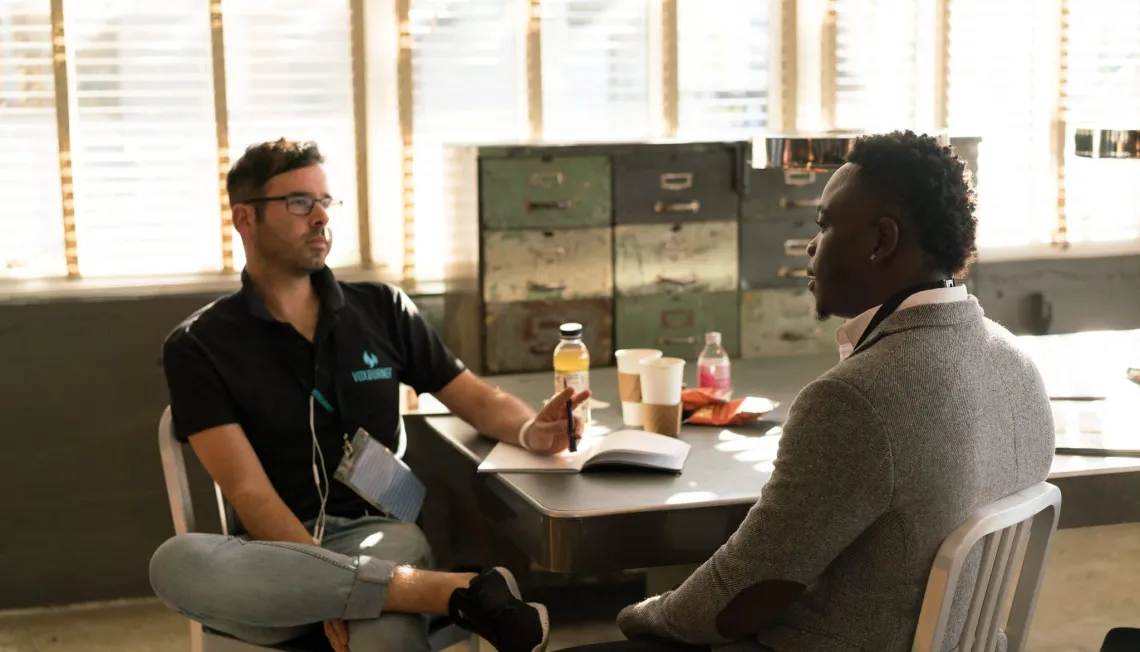Stephen Sinnott, Community Family Support Team Leader at Partners of Prisoners (POPS), told us all about his innovative work with young adults and their families.
The Intensive Community Order (ICO) is aimed at men aged 18-25 who are at risk of a 12-month or less prison sentence. The court have the option to issue this intensive community sentence as an alternative to a custodial sentence. POPS’ community based Family Support Workers work in partnership with the Greater Manchester and Cheshire Community Rehabilitation Company (CRC) to provide the individual’s families with support, advice and guidance. The aim is to contribute to a reduction in risk and therefore reducing the potential for breach of their order and re-offending.
Robust partnership working
ICOs began in 2009 as a multi-agency partnership commissioned by the Probation Service, POPS were commissioned to deliver family support services and The Work Company provided employability support to the offenders on the order. All the staff from the various delivery partners were co-located within the probation offices to promote stronger and robust partnership working, this model was extremely successful. Stephen reports that, collectively and consistently, the ICO model has resulted in reoffending figures of less than 20% (average per year). The ICO model and the delivery partners were moved across to the CRC as part of the transition to Transforming Rehabilitation (TR).
Eligibility
There are guidelines in respect of who may be part of the cohort, the considerations taken into account include: whether the young man has a disability or learning difficulties, what his background is, and the nature of the crime. The National Probation Service (NPS) initially make the decision regarding suitability as CRCs, under current contract arrangements, are prevented from providing advice to the courts. Stephen says this is an example of the effect of post-TR difficulties in how work is carried out.
Once sentenced to an ICO, the case manager, who is often a CRC case worker, will then make an appointment with the POPS family support worker where they will complete an eco-web, which helps provide a snapshot of what is happening in the life of the client. This includes everything from their family situation and who is around them to their health, history with drugs and alcohol, and also their educational background. Stephen notes, “It is really about understanding all of it.” This process takes roughly an hour. From here, they are able to build up a good picture of the client’s life and also identify the person who is closest to them, whether that is a parent or another individual who would then need support (alongside the client themselves).
Working with the family
Stephen says they ask the client if they are happy for POPS to make contact with the individual they have nominated to offer them support and also be the link between them and the case manager – this is entirely up to the client. Most of them agree. POPS then reach out to them via post as they’ve found it’s the least intrusive and best way (generally). When they meet those who are closest/the family of the client, they then explain what’s going on, the process and go through it stage by stage (for example, explaining what a community order is). The POPS family support worker will also discuss issues that the nominated person is facing and build a family action plan with them stating what support can be offered and who will complete the actions. This ensures that there’s support for them and the client.
On average, POPS works with the client’s family/identified individual for 6-8 months although the longest has been 3 years. CRCs case manage the individual on the community order whilst POPs take care of the family side of things.
Funding
The funding for the ICO model as a whole (including CRC and the POPS family support element) is currently provided through the Greater Manchester Combined Authority Life Chances Fund. The funding is currently assigned for a period of 3 years (currently in year 3) with the funding reviewed on an annual basis.
Stephen explained that the reduction in reoffending rates and the reduction in the use of custodial sentences are regarded as the main elements of the cost benefit analysis. However, additional measures are also being used to measure the benefits of operating this model, including: the reduction in the number of children placed at risk or placed in the care system as a result of receiving quality family support interventions; and the reduction in housing issues and homelessness as a result of the work carried out to ensure families are able to remain in their homes.
ICO was initially trialled in 6 areas around the country under the name IAC (Intensive Alternative to Custody), but it is not known if any other projects are still running in the same way as the one in Greater Manchester is. In Greater Manchester it is an embedded practice that has had to change due to TR, especially as now it is set up slightly differently. Nevertheless, the results are good and there’s a high level of engagement with the work.
This case-study was compiled and edited by Jaskirat Mann in 2018
